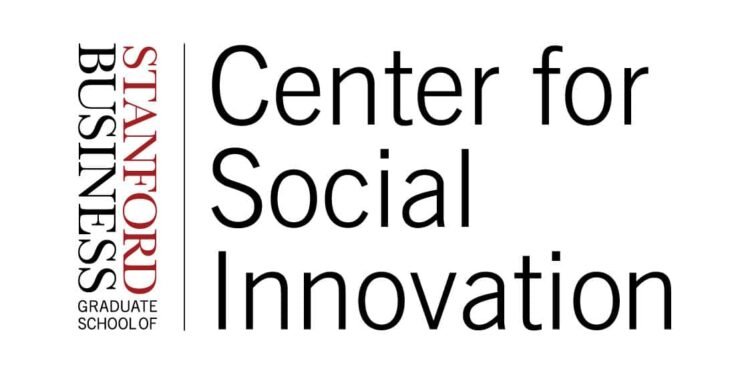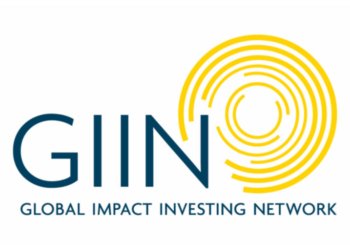- What if solving the world’s most complex problems required more than just good intentions? What if it demanded a new way of thinking that combines business acumen with social purpose?
This is the fundamental question driving the work at Stanford University’s Center for Social Innovation. For over 25 years, this pioneering institution has been answering this challenge through a unique blend of research, education, and hands-on learning.
The Center operates within Stanford’s Graduate School of Business ecosystem, bringing together diverse thinkers and doers. Its mission focuses on creating meaningful social and environmental change through innovative approaches.
By strengthening the capacity of individuals and organizations, the Center empowers them to develop practical solutions to pressing societal challenges. This work spans across sectors and disciplines, creating a network of leaders committed to positive impact.
Key Takeaways
- The Center drives social and environmental change through research and education
- It combines academic rigor with practical, hands-on learning experiences
- The institution empowers individuals and organizations to solve complex problems
- It operates within Stanford’s business school environment
- The Center has a 25-year legacy of innovation and impact
- It serves as a hub for social entrepreneurship across multiple sectors
- The work focuses on creating a more just and sustainable world
Introduction to the Stanford Center for Social Innovation
How do we build a better world when traditional approaches fall short? The answer lies in bold new thinking that connects diverse fields and perspectives.
Our Mission and Vision for Social Change
Our core purpose is to drive meaningful social and environmental transformation. We believe real change happens when innovative ideas meet practical action.
The vision extends beyond single projects or programs. We imagine a global community of leaders working across boundaries. These change-makers collaborate across business, government, and nonprofit sectors.
They share a common goal: building a more just and sustainable world. This network approach multiplies impact far beyond what any single organization could achieve.
25 Years of Driving Social Innovation
In Fall 2024, we marked a significant milestone: twenty-five years of pioneering work. This anniversary celebrates both our current initiatives and historical roots.
The institution’s evolution connects directly to the enduring legacy of the Public Management Program. Over decades, we’ve adapted to address emerging challenges while staying true to our core values.
Our approach has consistently focused on collaborative solutions. We bring together thinkers and doers from different disciplines. This cross-pollination sparks breakthrough ideas for tough problems.
The journey continues as we look toward future challenges. Our commitment remains strong: empowering leaders who make a real difference in their communities and beyond.
Defining Social Innovation and Social Entrepreneurship
When traditional methods fail to address society’s deepest challenges, what new approaches emerge? This question lies at the heart of understanding two powerful concepts that drive meaningful change.
Both social innovation and social entrepreneurship represent transformative approaches to solving complex problems. They share a common goal of creating positive impact but operate through different mechanisms and scales.
What Distinguishes Social Innovation from Social Entrepreneurship
Social innovation focuses on systemic change through new ideas, processes, or models. It addresses root causes rather than symptoms. This approach often involves reshaping entire systems or creating new paradigms.
Social entrepreneurship typically involves creating ventures that address social issues through market-based solutions. These organizations blend business methods with social missions. They create sustainable models for addressing specific problems.
The key difference lies in scope and approach. Innovation seeks to transform systems, while entrepreneurship builds organizations within those systems. Both are essential for comprehensive social change.
The Core Principles of Effective Social Innovation
Successful social innovation follows several guiding principles. Systemic thinking helps understand complex interconnections between issues. This holistic view enables more comprehensive solutions.
Collaborative design brings diverse stakeholders together. Including community voices ensures solutions meet real needs. This participatory approach increases effectiveness and sustainability.
Adaptive implementation allows for learning and adjustment. Social challenges often require iterative approaches. Testing and refining ideas leads to better outcomes.
These principles help create lasting change across different contexts. They provide a framework for developing effective solutions to pressing social problems.
The institution serves as a social entrepreneurship hub that empowers change-makers. It provides tools and frameworks for understanding these concepts. This support helps innovators develop their preferred approach to creating impact.
Educational Programs and Curriculum
What educational framework best equips change-makers to create sustainable impact across diverse sectors and communities? Our approach combines rigorous academic foundations with real-world application, creating a transformative learning experience.
Holistic Social Innovation Learning Model
Our curriculum represents a comprehensive educational framework that integrates multiple learning dimensions. This model builds upon the management core from the business school environment.
Academic theories merge with practical experiences to create deep understanding. Students engage with frameworks while applying concepts to real challenges.
The approach leverages diverse perspectives from various stakeholders. Faculty, professionals, and students all contribute to the rich learning ecosystem.
Personalized Coursework and Focus Areas
Students can tailor their educational journey through specialized concentration options. This personalized coursework focus allows for deep dives into specific interest areas.
Multiple pathways exist for exploring social impact domains. Each track combines foundational principles with specialized knowledge applications.
The curriculum emphasizes cross-sector approaches and systems thinking methodologies. Human-centered design and impact measurement form the core methodological foundation.
Experiential Learning Opportunities
Hands-on discovery forms a critical component of the educational experience. Students engage in practical applications through various immersive formats.
Field projects connect classroom learning with real organizational challenges. Internships provide extended engagement with high-impact organizations.
These experiential learning opportunities create meaningful impact journeys. Students develop practical skills while making tangible contributions.
The institution supports faculty in developing innovative course offerings. Both tenure-line and adjunct professors receive resources for curriculum design.
This comprehensive preparation equips graduates for diverse social impact careers. The educational programs create leaders ready to drive meaningful change across sectors.
Research and Academic Contributions
What role does evidence-based analysis play in creating sustainable solutions to complex societal challenges? Academic investigation forms the foundation for understanding what truly works in social transformation.
Rigorous research separates effective approaches from well-intentioned but flawed interventions. This evidence-based understanding helps organizations allocate resources more effectively.
Faculty Research on Social Impact Solutions
Faculty members conduct groundbreaking studies across diverse social impact domains. Their investigations explore innovative approaches to persistent social problems.
Research initiatives examine various intervention models and their effectiveness. Studies analyze different funding mechanisms and their impact on sustainability.
This scholarly work contributes new frameworks for understanding social change dynamics. The research often challenges conventional wisdom about what creates meaningful impact.
Case Studies and Publications
Detailed case studies examine both successful and unsuccessful change efforts. These analyses provide valuable insights into what factors drive positive outcomes.
Publication outputs include academic papers, research reports, and practical guides. These resources translate complex findings into actionable knowledge for practitioners.
Case materials cover diverse sectors including education, healthcare, and environmental conservation. Each study offers lessons applicable across different contexts and scales.
Evaluating What Works in Social Change
Evaluation methodologies assess effectiveness across various social change initiatives. These approaches measure both immediate outcomes and long-term impact.
Research services support faculty investigating diverse social innovation topics. Collaborative projects involve partnerships with organizations and communities.
Findings inform both practice and policy in social and environmental sectors. Research outcomes translate into practical tools and frameworks for change-makers.
This evaluation work helps refine approaches to creating sustainable social improvement. It ensures resources focus on methods that deliver measurable results.
Fellowships and Financial Support Programs
How can financial support transform good ideas into real-world impact? These programs provide crucial resources for leaders committed to social and environmental change.
Various funding mechanisms help bridge the gap between concept and implementation. They support individuals at different stages of their impact journeys.
MBA Summer Fellowships for High-Impact Organizations
Summer fellowships offer financial support for internships with mission-driven organizations. Students gain hands-on experience while contributing to meaningful work.
These programs include immersion opportunities for exploring social or environmental ventures. Participants receive guidance throughout their summer experience.
The selection process identifies candidates with strong potential for creating positive change. Financial backing enables students to pursue these opportunities regardless of economic background.
Post-Graduate Impact Careers Fellowships and Prizes
Graduates pursuing social impact careers can apply for specialized fellowship programs. These initiatives support transitions into roles that make a difference.
Prize programs recognize outstanding contributions to social and environmental progress. They provide both recognition and financial resources for continued work.
Recipients gain access to coaching and professional development opportunities. This support helps accelerate their impact journeys after graduation.
Funding Opportunities for Social Ventures
Aspiring entrepreneurs can access funding for new social ventures at various stages. Resources support both early-stage ideas and established initiatives.
The application process evaluates potential for sustainable impact and innovation. Selected ventures receive financial backing along with mentorship support.
Community building activities connect founders with networks of like-minded innovators. These connections create collaborative opportunities for greater collective impact.
Whether supporting existing organizations or launching new ventures, these programs provide crucial resources. They help change-makers translate vision into tangible results.
Social Venture Planning and Implementation Tools
How do you turn a vision for change into a sustainable organization that delivers real results? The journey from idea to impact requires careful planning and the right tools to navigate complex challenges.
Launching a social venture demands more than passion. It requires strategic thinking and practical frameworks. These tools help entrepreneurs build strong foundations for lasting change.
The Path to Launch Framework
The Path to Launch framework provides a structured approach for new ventures. It outlines four essential stages every entrepreneur should complete.
Many founders rush to launch without proper preparation. This often leads to problems later. The framework helps avoid common pitfalls through systematic planning.
Each stage builds upon the previous one. This creates a solid foundation for sustainable operations. The process ensures both social and financial considerations receive proper attention.
Strategy Development for Social Change
Effective strategy development begins with clear problem identification. Understanding root causes leads to better solutions.
Tools help analyze market needs and potential impact. They assess competition and identify unique value propositions. This strategic thinking separates successful ventures from those that struggle.
Strategy tools also help define target beneficiaries and outreach methods. They ensure resources focus on areas of greatest need and potential impact.
Impact Business Model Design
Creating a sustainable business model requires balancing social mission and financial reality. The right model ensures long-term viability while maximizing positive change.
Design tools help explore various revenue streams and cost structures. They assess different funding approaches from grants to earned income.
These models incorporate impact measurement from the beginning. This integration ensures social goals remain central to financial decisions.
Systems Thinking Approaches
Systems thinking helps understand complex social problems in their full context. It reveals connections between different factors and stakeholders.
This approach prevents narrow solutions that address symptoms rather than causes. It encourages comprehensive strategies that create meaningful change.
Mapping tools visualize relationships and potential ripple effects. They help anticipate unintended consequences and identify leverage points for maximum impact.
Free planning resources provide practical guidance for each development stage. They support both new ventures and existing organizations scaling their impact.
These tools help navigate the entire journey from concept to implementation. They build capacity for creating sustainable solutions to pressing social challenges.
Resources for Social Innovators
Where do social innovators turn when they need practical support for their mission-driven work? A comprehensive ecosystem of specialized resources exists to help transform ideas into measurable impact.
These tools and services address the unique challenges facing mission-driven organizations. They provide crucial support throughout the development journey.
Entrepreneurship Support and Guidance
Entrepreneurship resources provide foundational support for new venture creation. These programs help navigate the complex path from concept to implementation.
Mentoring programs connect experienced advisors with emerging social entrepreneurs. Coaching sessions focus on developing leadership capabilities and strategic thinking.
Specialized guidance addresses the many things involved in launching successful initiatives. Support services cover everything from initial planning to scaling operations.
Management Resources for Social Ventures
Operating a social venture requires unique management approaches that balance mission and sustainability. Tailored resources address these specific operational challenges.
Management tools help organizations develop efficient systems and processes. They provide frameworks for financial management, human resources, and operational excellence.
These resources are especially valuable in areas requiring careful planning and execution. They support both new launches and established organizations seeking growth.
Networking and Community Building
Community building initiatives create valuable connections among like-minded change-makers. Networking opportunities facilitate knowledge sharing and collaborative partnerships.
These programs help social innovators build supportive professional networks. They create spaces for exchanging ideas and developing collaborative projects.
Community engagement strategies foster long-term relationships among diverse stakeholders. Partnership building resources help organizations form effective alliances.
Weekly eNews updates provide ongoing information about opportunities and developments. Subscribers receive regular insights into emerging trends and available resources.
Free planning tools help develop solutions to complex social problems. The newest module on systems thinking offers innovative approaches to challenge analysis.
These comprehensive resources support social innovators across different domains and development stages. They provide practical help for creating sustainable impact.
Impact Measurement and Evaluation
How do you know if your efforts are truly making a difference in the world? Measuring real change requires more than just counting activities or tracking outputs. It demands thoughtful frameworks that capture both intended and unexpected results.
Effective evaluation helps organizations understand their true social impact. It provides clarity about what works and what needs adjustment. This learning process is essential for any venture aiming to create meaningful change.
The Impact Compass Framework
The Impact Compass offers a structured approach to conceptualizing your organization’s effect. This framework examines six key dimensions of change. It helps identify where you can maximize your positive influence.
Each dimension represents a different aspect of social and environmental transformation. The compass provides a holistic view of your venture’s potential effects. This comprehensive perspective ensures no important area gets overlooked.
Using this tool, leaders can better understand their organization’s complete footprint. It highlights both strengths and areas needing development. The framework serves as a guide for strategic decision-making and resource allocation.
Measuring Social and Environmental Outcomes
Accurate measurement requires clear metrics that reflect your mission’s true purpose. These indicators should capture both quantitative and qualitative changes. They need to tell the full story of your organization’s effect on communities and ecosystems.
Good measurement systems track progress toward specific social environmental goals. They help demonstrate accountability to stakeholders and funders. The data collected informs continuous improvement efforts.
Evaluation techniques should assess both intended and unintended consequences. This comprehensive approach provides a complete picture of your venture’s real-world effects. It helps organizations make informed adjustments to their strategies.
Purposeful Leadership and Risk Mitigation
Purposeful leadership involves anticipating potential challenges before they arise. Leaders must consider how to mitigate risks associated with their social initiatives. This proactive approach prevents problems and protects both beneficiaries and the organization.
Risk assessment frameworks help identify potential negative consequences early. They enable organizations to develop strategies for avoiding or minimizing harm. This careful planning is crucial for maintaining trust and credibility.
Ethical considerations should guide all impact measurement and reporting practices. Transparent communication about both successes and challenges builds stakeholder confidence. It demonstrates commitment to honest assessment and continuous learning.
These frameworks support accountability while enabling organizations to adapt and grow. They provide the resources and structure needed for meaningful evaluation. This systematic approach helps ventures navigate the complex journey from idea to proven impact.
Conclusion: Building a More Just and Sustainable World
What lasting change emerges when vision meets action across all sectors? The Stanford Center for Social Innovation demonstrates how comprehensive approaches create meaningful transformation.
Through education programs and research initiatives, the institution empowers leaders to drive social change. Fellowship opportunities support those committed to making a difference.
Cross-sector collaboration remains essential for addressing complex global challenges. Networked communities of innovators develop sustainable solutions together.
The vision extends beyond individual projects to systemic impact. Resources and tools help organizations implement effective strategies.
Twenty-five years of social innovation work shows the power of this approach. Future directions will continue building on this legacy of positive change.
Join this movement toward greater justice and sustainability. Engage with these programs and resources to contribute to a more prosperous world.
FAQ
What is the mission of the Stanford Center for Social Innovation?
The mission is to advance social and environmental change through education, research, and practical resources. It empowers leaders to develop innovative solutions for a more just and sustainable world.
How does the center support students interested in social entrepreneurship?
It offers personalized coursework, experiential learning opportunities, fellowships, and tools like the Path to Launch framework to help students navigate their impact journeys.
What types of financial support are available for social ventures?
Funding includes MBA summer fellowships for work with high-impact organizations, post-graduate fellowships, and prizes designed to support early-stage social ventures.
What is the Impact Compass framework?
It is a tool used to measure social and environmental outcomes, helping leaders assess their venture’s real-world effects and align strategy with meaningful impact goals.
How does the center help with launching a social venture?
Through resources like strategy development workshops, impact business model design support, and access to a network of mentors and peers in the social innovation community.
Can non-students access the center’s resources?
Yes, many resources—including research publications, case studies, and management tools—are available online to support a broader audience of social innovators and organizations.





